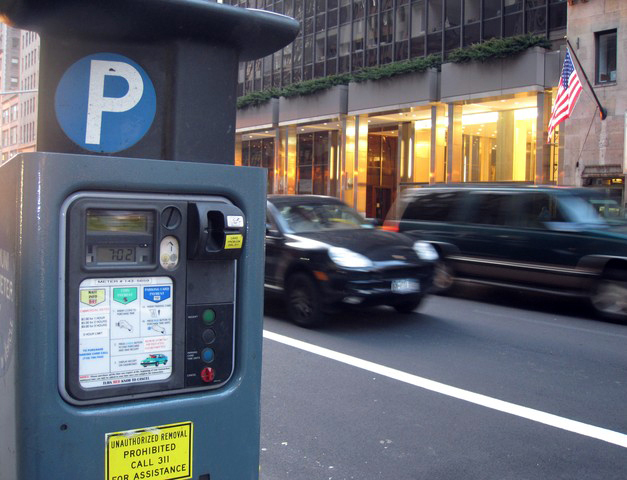
Summary & Quick Facts
- The rate hikes are the first increase in parking prices since 2013.
- The new system consists of six tiers of hourly parking meter rates.
- The pricing ranges from $1.25 in some neighborhood shopping districts to $7.50 for drivers who park longer in Manhattan’s most crowded areas.
- Advocates for the price increases argue that cheap metered parking on commercial streets is a problem and causes increased congestion.
It’s No Secret, Driving In NYC Is Pricey…
Having a car in NYC can be expensive. Between gas, insurance and dealing with parking meters, it’s quite easy to burn all your hard earned money in the fuel tank. Sorry NYC drivers but things might get a little more expensive. Starting next month, the Department of Transportation will update on-street parking meter rates throughout the city for the first time in seven years. Many argue that it’s an improvement over the status quo. Others think its just one other expense in an already expensive city. Nevertheless, the current low price of metered parking will be going up citywide, with bigger rate increases for busy commercial districts. Learn about the changes and how it may affect your area.
What Are The New Parking Meter Rates?
The rate hikes are the first increase in parking prices since 2013. The rate changes will affect both passenger and commercial vehicles. Pricing will also vary by location and meter type.
The new system consists of six tiers of hourly parking meter rates. The pricing ranges from $1.25 in some neighborhood shopping districts to $7.50 for drivers who park longer than an hour in Manhattan’s most crowded commercial areas. A map of the new parking meter prices is on the DOT website. The map is very useful for planning trips to the city. Nevertheless, stay attentive as it doesn’t differentiate between metered spaces and street parking that remains completely free.
Where Will The New Rates Apply?
In Manhattan, commercial meters in parts of Lower Manhattan and Midtown to 59th Street will see the highest increases. Prices will go up by two dollars for each hour. This means the rate will change $4, $5, and $6 for the first, second, and third hour to $6, $7, and $8. Prices will go up by one dollar per hour everywhere else in the city below 96th Street.
Don’t worry passenger cars, the city didn’t forget about you. Passenger parking meter rates will increase from $3.50 per hour to $4.50 in the same areas as commercial vehicles. Second-hour rates will increase from $6.50 to $ 7.50. In other parts of the city south of 96th Street will rise from $3.50 per hour to $4.00 per hour. Just north, from 96th to 110th Streets rates will increase from $1.50 to $2.50 per hour.
In the Bronx, Brooklyn, Queens and Staten Island, core area rates will increase by $1. Here the rates will rise from $1.00 per hour to $2.00 per hour. In other corridors in the outer borough, drivers will see prices go up from $1.00 per hour to $1.50 per hour.

When Do The New Rates Take Effect?
The first rate increases take effect in Brooklyn starting in September. The rest of the city will follow in the subsequent months until the end of the year. The rollout of the new rates is as follows:
- Brooklyn – September 4, 2018
- Manhattan – October 1, 2018
- Queens – November 1, 2018
- Bronx – December 3, 2018
- Staten Island – December 3, 2018
What Supporters Say About The Rate Increases
Advocates for the price increases argue that cheap metered parking on commercial streets is a problem. They say the low prices prevent spaces from freeing up as drivers wish to hold on to them. This causes drivers to endlessly cruise the streets for spots or double-park, causing more traffic on the roads. Currently, metered parking in most areas outside of Manhattan below 96th Street goes for just $1 per hour. This makes neighborhood commercial zones hotbeds of traffic congestion. The congestion, in turn, slows down buses and makes biking and walking more stressful. This overall can be a drag to commercial districts in our area.
These meter rate increases may or may not be large enough to make a noticeable dent in traffic, but they signify a more sophisticated approach to parking prices. It’s the first time DOT has set parking prices citywide in a way that responds to different conditions in commercial areas. Still, many drivers are not into the rate increases and see it as another increased cost of living in an already expensive city.
What do you think of the new rate increases? Let us know in the comments below!
